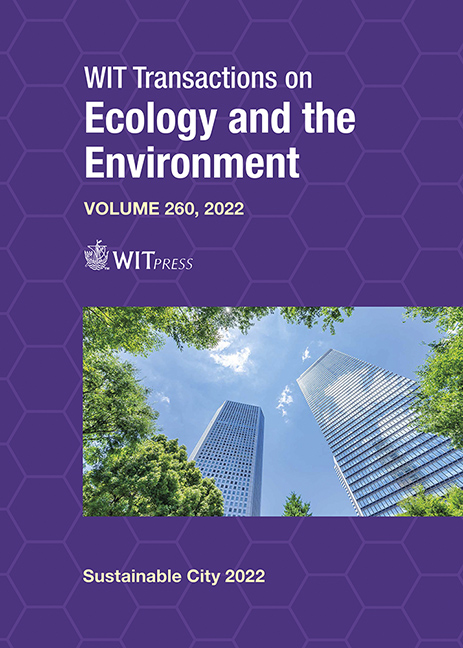EFFECTIVE URBAN CLIMATE ADAPTATION IN THE GLOBAL SOUTH? GOVERNANCE LESSONS FROM LILONGWE CITY, MALAWI
Price
Free (open access)
Transaction
Volume
260
Pages
11
Page Range
135 - 145
Published
2022
Paper DOI
10.2495/SC220121
Copyright
Author(s)
JOSEPHINE MARION ZIMBA
Abstract
Cities across the world are increasingly at risk of environmental challenges, including extreme weather events. The experiences and therefore the responses to such challenges are highly varied. Through the lens of the southern urban critique, such differences are also evident between cities in the global south and global north since “southern cities are socially, materially, culturally, politically and/or historically different from northern cities”. Although this is the case, scholars and practitioners have often ignored such apparent differences when theorising, planning and implementing responses to climate impacts. Oftentimes, such obfuscating of the differences risks maladaptation. This is particularly critical since climate impacts are fundamentally shaped through the processes that create the city. Hence, the differences in the processes across cities vitally entails differences in the impacts experienced and observed, and therefore differences in the responses. This paper aims to demonstrate how adaptation to climate change is governed and implemented in Malawi’s cities. Using a postcolonial approach, it firstly discusses the historical and contemporary production of risk to floods in “informal” settlements. Further, it draws attention to how citizen participation is operationalised in policy planning and implementation processes in addressing urban flood risks. Taking a qualitative approach, the research employed document analysis, focus group discussions and interviews with community leaders, officials from both government agencies and departments and non-governmental organisations working on flood risk management in “informal” settlements in Lilongwe city. The findings foreground how responses to climate change and extreme weather events are at once informed and thwarted by historical and contemporary governance processes across spatial scale. This paper, therefore, affirms the need to adopt the southern urban critique approach in theorising, planning and implementing responses to climate change
Keywords
flood risk, governance, informal settlements, southern urban critique





